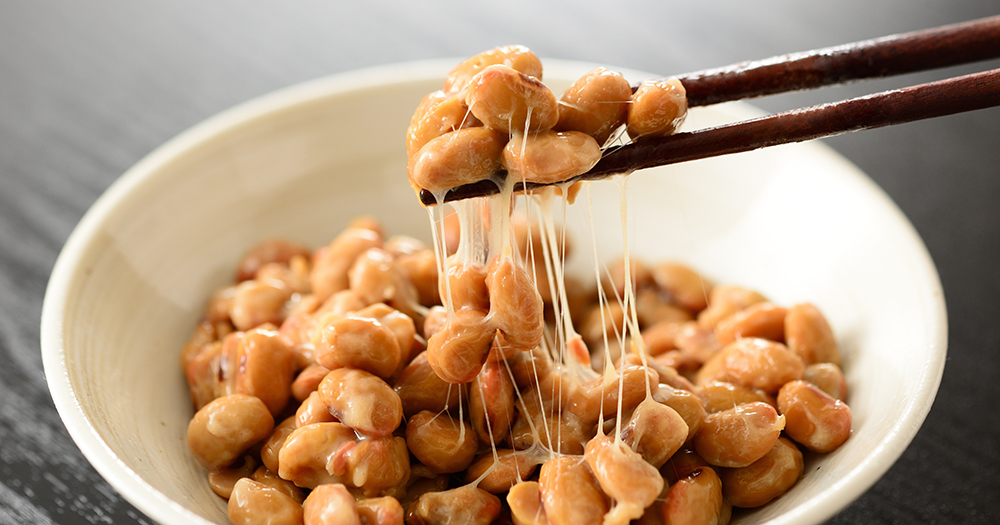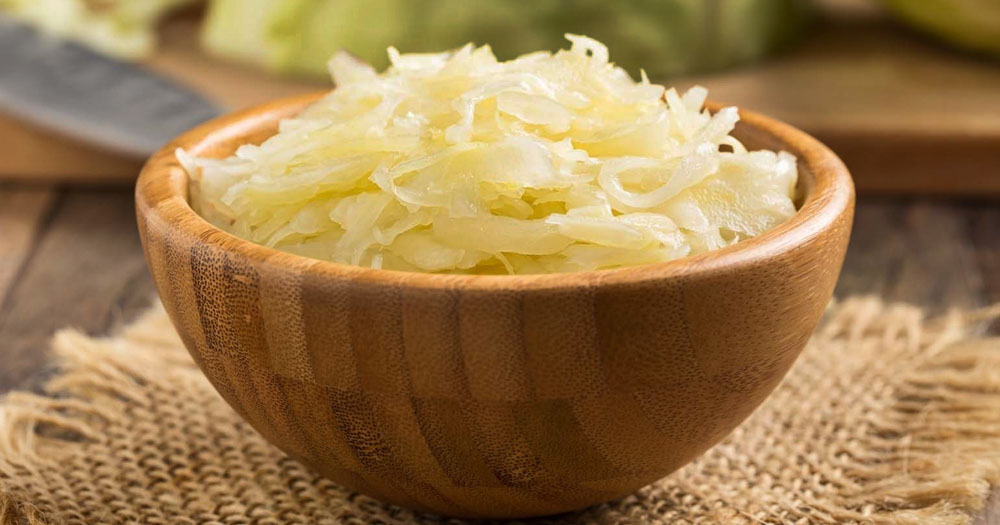Vitamin K2, a little-known super-nutrient that humans once thrived on and that has been ignored by scientists for almost 70 years. Really Vitamin K2 needs wider recognition and awareness. Vitamin K is named after the German word for blood clotting (koagulation). Scientists associate this vitamin with the process of blood clotting. However, there are two primary types of vitamin K, and they serve very different functions. Vitamin K1 is the primary form of vitamin K responsible for blood clotting, whereas vitamin K2 is essential for the health of arteries and blood vessels, bone strength, and plays a role in other biological processes as well, including tissue renewal, cell growth and cancer prevention.
In the 2014 paper, “Vitamin K: An old vitamin in a new perspective,” vitamin D expert Dr. Michael Holick review the history of vitamin K and its many benefits, including its significance for skeletal and cardiovascular health.
The difference between vitamins K1 and K2 was first established in the Rotterdam Study, published in 2004. A variety of foods were measured for vitamin K content, and vitamin K1 is found to be present in high amounts in green leafy vegetables, such as spinach, kale, broccoli, and cabbage. Vitamin K2, on the other hand, is only present in fermented foods. It’s produced by certain bacteria during the fermentation process. Interestingly, while the K1 in vegetables is poorly absorbed, virtually all of the K2 in fermented foods is readily available to your body.
Food sources of Vitamin K2


Certain microorganisms can convert K1 into K2. A great example is Bacillus natto which can convert K1 into K2 and it is often used in the production of fermented soy products, like natto. Examples of foods high in vitamin K2 include raw dairy products such as certain cheeses, raw butter, and kefir, as well as natto (a fermented soy product) and fermented vegetables like Sour-cabbage (fermented cabbage).
But there is one problem. We Indians can not eat a lot of natto. And so consuming Sour-cabbage and other fermented vegetables is a more pleasant way for getting K2. Besides that, the main quantity of vitamin K2 comes from the gut flora.
However, not every strain of bacteria makes K2, so not all fermented foods will contain it. Most commercial yogurts are virtually devoid of vitamin K2, and while certain types of cheeses such as Gouda, Brie, and Edam are high in K2, others are not. It really depends on the specific bacteria present during the fermentation.
Two main Categories of Vitamin K2
Vitamin K2 (a fat-soluble vitamin) can be broken into two additional categories, called:
MK-4 (menaquinone-4), a short-chain form (a type of fat) of vitamin K2 found in butter, egg yolks, and animal-based foods. Short chain fats are often liquid at room temperature. Avoid this in supplemental form, as it’s only available in synthetic form. MK-4 also has a very short biological half-life – about one hour – making it a poor candidate as a dietary supplement.
MK-7 (menaquinone-7), longer-chain forms. These are fats that are solid at room temperature) and found in fermented foods. There’s a variety of these long-chain forms but the most common one is MK-7. This is the one you’ll want to look for in supplements, as this form is extracted from real food, specifically natto. You could actually get loads of MK-7 from consuming natto, which is relatively inexpensive and available in most east Asian food markets. The MK-7, which forms in the fermentation process, has two major advantages. It stays in your body longer, and has a longer half-life, which means you can just take it once a day in very convenient dosing. Research has shown MK-7 helps prevent inflammation by inhibiting pro-inflammatory markers produced by white blood cells called monocytes.
Health Effects of Vitamin K2 Deficiency
Vitamin K2 is an important adjunct to vitamin D, without which vitamin D cannot work properly. K2’s biological action is also impaired by a lack of vitamin D, so you really need to consume these two nutrients together.
This means that if you take high doses of oral vitamin D you need to remember to also increase your vitamin K2 intake from either food or a MK-7 supplement. Failing to do so could cause harm, as without K2, your body will not be able to complete the transport of calcium into the proper areas, and arterial calcification could set in.
If you get your vitamin D primarily from sun exposure then this issue is largely avoided, as your body is then able to regulate its vitamin D production. You simply cannot overdose on vitamin D from sun exposure.
Vitamins D and K2 also work synergistically with magnesium and calcium, so this quartet should ideally be taken in combination. Unfortunately, most people are deficient in both vitamins D and K, and magnesium insufficiency is also common.
At least 50 percent of the general population is at risk of vitamin D deficiency, and as many as 97 percent may be lacking in vitamin K2. This could very well be due to the fact that we stopped eating fermented foods with the advent of refrigeration and other food processing techniques.
While you likely get sufficient amounts of vitamin K from your diet to maintain adequate blood clotting, you’re probably not getting enough to protect you from a variety of other health problems that are more specifically associated with vitamin K2, such as:
1 – Arterial calcification and cardiovascular disease
2 – Osteoporosis
3 – Leukemia and cancer of the lung, prostate, and liver
4 – Neurological deficiencies, including dementia
4 – Infectious diseases such as pneumonia
Beware: Statins May Deplete Vitamin K2
Statins are a group of drugs that act to reduce levels of fats, including cholesterol in the blood. Besides a vitamin K2-poor diet, certain drugs may affect your vitamin K2 status. Research published in the Journal of the American College of Cardiology suggests statin drugs may increase calcification in the arteries, and other research shows that statins deplete vitamin K2.
You may be aware that statin users need to take CoQ10 (or ubiquinol) as the drug depletes this nutrient, but they may also need vitamin K2 in order to avoid the cardiovascular risks associated with statins.
Cardiovascular Health
In the 1980s, it was discovered that vitamin K is needed to activate the protein osteocalcin, which is found in your bone. A decade or so later, another vitamin K-dependent protein was discovered: matrix Gla protein (MGP), found in your vascular (heart) system.
Without vitamin K, these and other vitamin K-dependent proteins remain inactivated, and cannot perform their biological functions. Another important finding was that MGP strongly inhibits calcification. When MGP remains inactivated, you end up with serious arterial calcifications, and this is why vitamin K is so crucial for cardiovascular health. Evidence suggests vitamin K can even reverse arterial calcification induced by vitamin K deficiency.
Vitamin K2 also helps prevent arterial calcification by shuttling calcium away from areas where it shouldn’t be (in the lining of your blood vessels) to where it’s really needed (such as in your bone). In the Rotterdam Study, which ran for 10 years, those who consumed the greatest amounts of K2 had the lowest risk of cardiovascular disease, cardiovascular calcification, and the lowest chance of dying from cardiovascular disease.
People who consumed 45 mcg of K2 daily lived seven years longer than people getting 12 mcg per day. This was a profound discovery, because such a correlation did not exist for K1 intake.
More recently, a study published in a medical journal, found that MK-7 supplementation improved arterial stiffness in otherwise healthy postmenopausal women. This study has been lauded as significant because while previous studies have only been able to show an association, this is the first to confirm that long-term use of vitamin K2 in the form of MK-7 does result in improved cardiovascular health.
Osteoporosis Prevention
As mentioned, vitamin K2 also plays a crucial role in bone health, and may be critical for the prevention of osteoporosis. Osteocalcin is a protein produced by your osteoblasts (cells responsible for bone formation), and is utilized within the bone as an integral part of the bone-forming process. However, osteocalcin must be “carboxylated” before it can be effective. Vitamin K functions as a cofactor for the enzyme that catalyzes (allows) the carboxylation of osteocalcin. A number of Japanese trials have shown that vitamin K2 completely reverses bone loss and in some cases even increases bone mass in people with osteoporosis.
Pregnancy
Vitamin K2 also plays an important role throughout pregnancy and during breastfeeding for the healthy growth of the child. Not only does it affect the development of both primary and adult teeth; it also helps develop proper facial form and strong bones. During childhood, vitamin K2 helps prevent cavities. It may be particularly important during the third trimester, as most women’s levels tend to drop at that time, indicating there’s an additional drain on the system toward the end of the pregnancy. Since there are no reported cases of overdose of vitamin K2, it may be advised to double or even triple your intake while pregnant.
Cancer prevention and treatment
Vitamin K2 has been shown to be a natural cancer fighter and effective in reducing the risk of prostate, colon, stomach, nasal and oral cancers. One study even found that high doses of vitamin K2 helped patients with liver cancer stabilize and even improve their liver function. The evidence also suggests vitamin K2 may reduce the risk for a type of lymphoma (cancer of the lymph nodes). Highest intake of vitamin K2 has a 45 percent lower risk for this type of cancer. They attribute this effect to Vitamin K2’s ability to inhibit inflammatory cytokines, which are related to this type of lymphoma, and its role in the life cycle of your cells.
Other health benefits
1 – Vitamin K2 has anti-inflammatory, anti-oxidative, and anticarcinogenic properties, and MK-7 may offer benefits for type 2 diabetes, cancer and age-related macular degeneration in the eyes
2 – Rheumatoid arthritis (RA)
3 – Parkinson’s disease
Are You Getting Enough Vitamin K?
Clearly, you want both vitamin K1 and K2, but you’re virtually guaranteed to not get enough K2 from your diet unless you eat the proper fermented foods. For a clinically useful dosage of vitamin K2, a general guideline is around 180-200 mcg of vitamin K2 per day. You can obtain healthy amounts (about 200 mcg) of K2 by eating 15 grams of natto each day or sour-cabbage.
If you opt for a vitamin K2 supplement, make sure it’s MK-7 (Tab Mena D). Also remember to take it with fat since it’s fat-soluble and won’t be absorbed otherwise. Fortunately, you don’t need to worry about overdosing on K2, as it appears to be completely non-toxic.
As a last tip, keep in mind that its internal workings are such that you’re not likely to feel the difference physically and feel better. Compliance can therefore be a problem, as people are more likely to take something that has a noticeable effect. This may not happen with vitamin K2, but that certainly does not mean it’s not doing anything.







Would saurkraut suffice for ingesting k2?
Yes